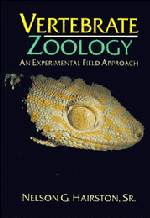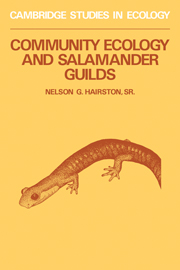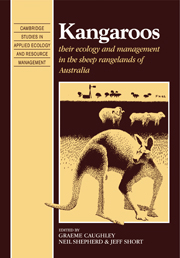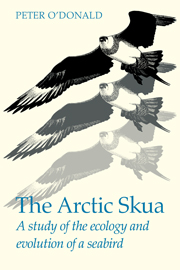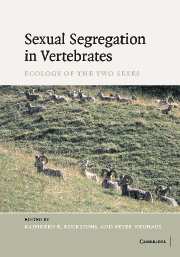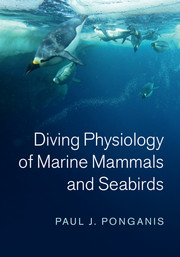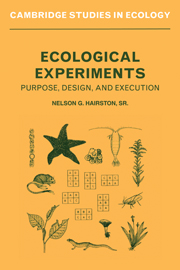Vertebrate Zoology
An Experimental Field Approach
Out of Print
- Author: Nelson G. Hairston, University of North Carolina, Chapel Hill
- Date Published: October 1994
- availability: Unavailable - out of print
- format: Hardback
- isbn: 9780521417037
Out of Print
Hardback
Looking for an inspection copy?
Please email [email protected] to enquire about an inspection copy of this book
-
This is a major new textbook that is intended to lead students away from purely descriptive zoology courses into an experimental approach that emphasizes asking and answering questions about nature. The book gives a panoramic view of vertebrate life, classification, ecology and behaviour. Section I of the book describes the major groups of vertebrates and their origins. The second section covers classification and its methodology. Section III describes the ecology of vertebrates from two standpoints: how individuals cope with environmental extremes, and principles of population and community ecology as illustrated by experiments carried out in the field. Section IV describes the geographic distribution of vertebrates. The fifth section discusses migration. Vertebrate behaviour is the subject of the final section and covers observations and the theories and experiments they have inspired.
Read more- Book represents the modern experimental approach to teaching zoology and should have many adoptions
- Well-known author (Eminent Ecologist Award 1991 from Ecological Society of America), with an excellent reputation, his earlier book Ecological Experiments was reviewed in Nature as 'the best ecology book to appear in several years
- A well-written, enjoyable text to read
- A mailing to 4,500 teachers and lecturers in this subject has been sent out (June 1994)
Customer reviews
Not yet reviewed
Be the first to review
Review was not posted due to profanity
×Product details
- Date Published: October 1994
- format: Hardback
- isbn: 9780521417037
- length: 365 pages
- dimensions: 260 x 184 x 25 mm
- weight: 0.82kg
- contains: 122 b/w illus. 27 tables
- availability: Unavailable - out of print
Table of Contents
Part I. The Major Groups of Living Vertebrates: Their Origin and Special Adaptations: Introduction: The geologic time scale, the seven major groups of vertebrates, perceptual abilities of vertebrates
1. The living vertebrates, agnatha, chondrichthyes and osteichthyes, amphibia, reptiles, mammals, aves
2. Vertebrate sensing of the environment, sight, hearing, smell and taste: chemical senses, touch and pressure, heat sensing, sensitivity to weak electric fields
Part II. Classification:
3. Classification: principles and problems, introduction, the categories, the use of the system in practice, an objective category: the species
problems in applying the species concept, practical problems, conceptual problems, Summary
Part III. Vertebrate Ecology: Introduction
4. Adaptations to different environments, seasonal activity patterns, coping with physical environments
5. A field study in population ecology: the rusty lizard
6. Field experiments on competing vertebrates, terrestrial salamanders, desert rodents, forest birds, lizards
7. Groups of vertebrate species (communities), niche partitioning among sunfish, tadpoles and newts, stream bank salamanders
8. An unsolved problem: population cycles
Part IV. Geographic Distribution of Vertebrates:
9. Distribution of North Carolina vertebrates, Summary
10. Global pattern and the distribution of climates, world-wide pattern, patterns within continents
11. Vertebrate distribution: the importance of other species, competition, predation and parasitism, food species, Summary
12. Principles of global distribution, the theories
Part V. Migration:
13. The migration of vertebrates other than birds, Summary
14. Bird migration: patterns and capabilities, the reasons for migrating, observational methods, experimental methods, migration routes, the achievements of migrating birds, questions about migrating birds
15. Direction-finding and navigation by birds, landmarks, the sun, the stars, magnetism, smell, sound, navigation, Summary
16. Physiological solutions to problems of migration, the timing of migration, the energetics of migration
Part VI. Vertebrate Behaviour:
17. The independent behaviour of individuals, feeding behaviour, predator avoidance, two special cases, Summary
18. The behaviour of two individuals interacting, territorial behaviour, mating behaviour, parental care, Summary
19. Behavioural interactions in groups of vertebrates, predator avoidance, energetic benefits to vertebrates in groups, the origins of group behaviour, group selection, the requirements for group selection, Summary.
Sorry, this resource is locked
Please register or sign in to request access. If you are having problems accessing these resources please email [email protected]
Register Sign in» Proceed
You are now leaving the Cambridge University Press website. Your eBook purchase and download will be completed by our partner www.ebooks.com. Please see the permission section of the www.ebooks.com catalogue page for details of the print & copy limits on our eBooks.
Continue ×Are you sure you want to delete your account?
This cannot be undone.
Thank you for your feedback which will help us improve our service.
If you requested a response, we will make sure to get back to you shortly.
×
